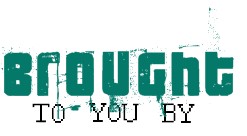choosing to Play & Playing to choose By Robin
I have a lot of thoughts about moral consequence systems in video games, I really do. I filled entire pages with web diagrams of how I feel moral choices impact a game's story, immersion, and personalization. I contemplated how designers use it to impact everything from the game environment to a character's wardrobe. But I think I finally realized after all of that - it isn't some defined effect on a gameplay mechanic that creates a truly successful moral system in a video game. It is most memorable when a game presents you with a situation that you can honestly relate to your life, and it becomes more than “how will this affect my good/evil stat”. It becomes a legitimate contemplation of “what would I really do in this situation,” and the best answer isn't obvious.

Unleash potential evil on entire galaxy for good morality points?
The problem is most moral systems thus far have been obsessed with tracking ethical purity on a linear scale. Good versus evil, paragon versus renegade, shiny blue glow versus shiny red glow – every choice is defined on a set “+10 asshole” or “+10 angel” points. Unfortunately, this often degrades the choices in the game to a mere tacked on character stat, and it becomes simply more advantageous to consistently respond to people as a careless murderer or a squeaky clean savior. And honestly, there aren't many dimensions to these linear types of questions. The choice whether to harvest the lives of little girls for your own benefit or offer them a brighter future is pretty straightforward.

Are my angel wings a bit too much? I just wanted people to know I'm a good person!
Some games are beginning to transcend the blunt morality fault, though. Despite Fable's continuously cliché demonic versus angelic character development, I can honestly say Fable III presented me with situations that left me yelling at my television screen, heart torn in opposite directions at my options. The third instillation in the Fable series seems to have finally gotten it right. It's moral choice system is very emotionally compelling because it manages to embody the feeling that whatever you choose, there will be consequences.

“Life in the Castle: Choose who must die.”
For example, Fable III smacks you with one monster of a moral decision within the first few cutscenes. Your brother, the King of Albion, forces you to choose between the life of your close friend or the lives of a group of protestors. This type of question goes beyond a virtual setting. It's essentially a question of what you, as an individual, really value. Neither option is in any way ideal, but the game forces you to weigh logic and emotion to make the decision that you believe is best.
In addition to some incredibly emotionally compelling decisions, Fable III consistently holds the notion that doing what is “right” isn't always the easiest. The latest release in the Fallout series, Fallout New Vegas, uses a faction system to rate the player's karma. Like real life, different groups of people react to your decisions in different ways based on their perceptions. And despite it's reliance on stereotypical benevolent blue and evil red meters, the Mass Effect series has provided some intense situations that make you wonder the impact of your judgment. Since all of the decisions you make in the first two Mass Effect games will carry over to the conclusion of the story in the third, I predict Mass Effect 3 will really display the weight of all of your previous choices.
I think we've really only scratched the surface of the game experiences that could be created with moral systems. The gaming industry is continuously evolving to offer gamers engaging stories, unique environments, and new ways to play. I see moral choice systems continuing to evolve with those goals. Granted, despite all the story-telling possibility, life contemplating immersion, and future gaming implication – it's really damn fun to just be evil sometimes.
 Articles
Articles 











Reader Comments (1)
Nice article! I feel it's worthy of note that in Mass Effect they show you both of your morality meters and how far they've progressed, whereas in a game like Fallout 3/NV it's just whichever side you're leaning toward.
The faction system was great in New Vegas as it wasn't so cut and dry (black and white) - there were pros and cons to every action you chose in the story. Help "the man" who's in it for power and influence? Help "The dictator" who's in it to make sure everybody falls in line? Help the scientist who seems like he's got the future all figured out? Or help yourself and do whatever the heck you please? Every story path in that game has it's goods and it's evils - an excellent system.
Another game where the karma system affected the story noticeably is inFamous, every cutscene changed based on your morality and the key decisions you make, and you can end up with some radically different endings to the game. It's pretty great.